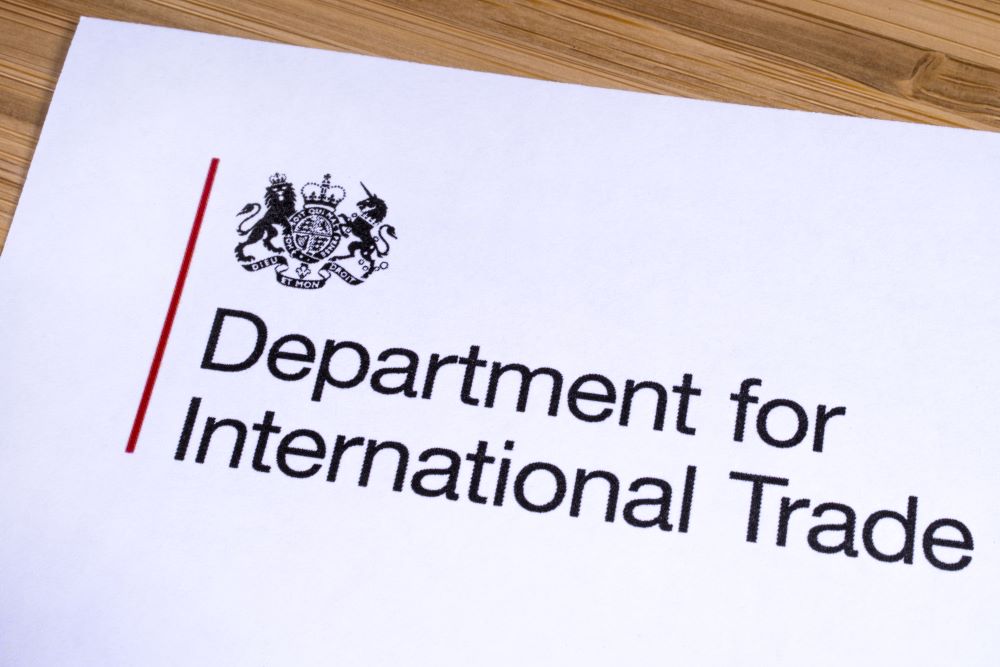
The Department for International Trade (DIT) was established five years ago today (13 July) with the goal of formulating the UK’s first independent trade policies for decades, following its departure from the EU.
Here the IOE&IT Daily Update looks back on the major achievements the department has achieved to date.
1. Rollover deals
As a member of the EU, the UK was automatically party to the trade deals signed by Brussels. This ended when the transition period closed on 31 December 2020.
DIT sought to reproduce the terms of these agreements to ensure continuity for UK businesses trading with non-EU markets.
By the start of 2021, ‘rollover deals’ were in place with 66 of the 70 countries that the EU had preferential agreements with, reports the BBC.
2. New trade agreements
As well as rollover deals, the UK has sought to secure its own agreements with its main trading partners.
While the DIT’s role in the negotiations for the agreement with the EU was limited, it has led the country’s negotiations with other markets.
Its deal with Japan in October last year was heralded by the government as the UK’s first big post-Brexit trade deal and represented a £15bn boost to trade.
Australia followed earlier this month, with a deal that promises to open up the Australian market for UK cars, whisky and confectionery, according to Reuters.
Australian farmers are looking forward to selling more produce in the UK, although a transition period, during which tariffs in the sector will be gradually phased out, will protect UK farmers for up to 15 years.
Negotiations with New Zealand are ongoing, and Norway, Iceland and Liechtenstein also concluded a deal recently, as reported in IOE&IT Daily Update.
3. Launched formal negotiations to join CPTPP
In January, the UK announced it was applying to join the world’s largest free trade bloc, the Comprehensive and Progressive Trans-Pacific Partnership (CPTPP).
Formal negotiations have now begun and the UK hopes that it could become a member of the £9 trillion partnership by the end of 2022, Nikkei Asia reports.
International trade secretary Liz Truss has called membership “a glittering post-Brexit prize that I want us to seize”, reports the Guardian.
4. Secured a tariff deal with the US
The 17-year Boeing-Airbus dispute was brought to an end last month, with the UK and US agreeing to put aside retaliatory tariffs for five years and to cooperate on tackling unfair trade practices by non-market-oriented economies.
A future trade deal may be further off as president Biden is focussing instead on domestic issues and mid-term elections, but the DIT team is currently in the US and is laying the groundwork for a future agreement, reports the Times.
5. Launched the UK Global Tariff
The UK slashed tariffs on a wide range of goods when it left the EU at the end of 2020. It did so via the ‘UK Global Tariff’ which DIT launched in May last year.
According to PWC, the new regime was developed to meet the needs of the UK economy, making it easier and cheaper for UK businesses to import goods from overseas, reducing administration, and resulting in lower, simpler and more streamlined tariff rates.

